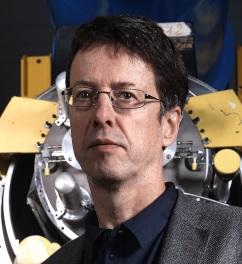From concept to deployment, CERN's engineering practices emphasise precision, longevity, quality and cost management, enabling groundbreaking technology while maintaining high standards throughout the product lifecycle. The result is a truly remarkable level of performance across a diverse landscape of specialities.
Engineering processes at CERN are essential for creating the complex equipment that forms the backbone of the Laboratory. By integrating advanced fabrication tools, precision machining and rigorous quality control, we ensure that our components perform reliably for decades, even under extreme conditions. Our collaboration with external partners and our strong focus on innovation drive the development of sophisticated technologies.
All of this expertise is crucial as CERN prepares for an ambitious slate of projects. The high-luminosity upgrade of the LHC (HL-LHC) is set for deployment during Long Shutdown 3, which will start at the end of 2025. The high-intensity programme at the ECN3 facility is planned for the 2030s, alongside the ongoing two-phase North Area consolidation project. Additionally, the Future Circular Collider Feasibility Study will move to its next phase in 2025. These initiatives highlight the dynamic and forward-looking agenda of the Accelerators and Technology sector (ATS) and its four departments: Beams (BE), Engineering (EN), Accelerator Systems (SY) and Technology (TE).
The first Accelerators and Technology sector workshop is scheduled for 25 June at the CERN Science Gateway. Targeting ATS sector members but open to the broader CERN community, the workshop will showcase the extensive range of engineering and technical activities in place across the sector. It will provide a platform for sharing experiences, expertise, challenges, methodologies and solutions, covering engineering design tools, processes and project management methodologies.
The workshop will be divided into two sessions, the first focusing on engineering design tools and processes, covering topics from digital twins to lifecycle management, and the second concentrating on project management methods and tools for future projects. This event offers a chance to explore various engineering and technical activities, network with colleagues across different teams and departments and build connections, whether over coffee or a beer at the end of the day. Registration is now open.
The recent 2023 engagement survey showed the CERN community’s strong commitment to working here, in this unique and challenging environment. However, it also highlighted the need for better collaboration across teams, improved recognition of achievements, more effective workload management and a greater focus on the future. This first ATS workshop is one of several measures being pursued to enhance collaboration, share insights and explore potential synergies across teams.

